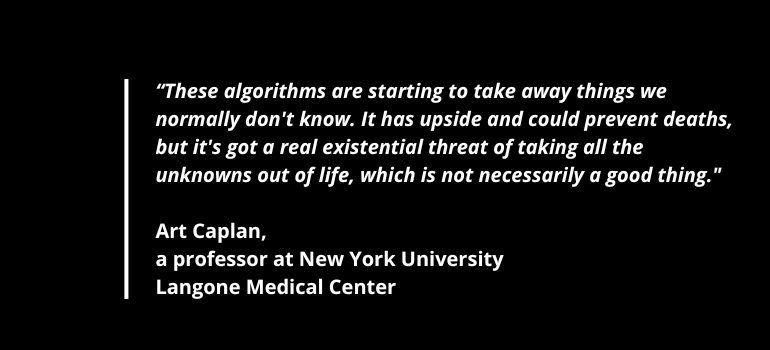As artificial intelligence (AI) increasingly becomes a part of our daily lives, its application in areas previously considered purely human domains has sparked both interest and debate.
The capability of AI to predict mortality, a subject of both ethical and existential concern, has recently made significant strides.
A notable example is the life2vec algorithm, an AI model that has demonstrated a 78% accuracy rate in predicting death among a dataset of over 6 million individuals from Denmark. This project, detailed in the Nature Computational Science journal, represents a remarkable intersection of technology, healthcare, and ethical consideration.

The development of such predictive models raises profound ethical questions, particularly regarding the disclosure of mortality predictions to individuals. The researchers behind life2vec, understanding the gravity of this information, responsibly chose not to inform study participants of their individual predictions, highlighting the ethical complexities involved in the application of AI in sensitive areas.
Art Caplan, a bioethics professor at NYU Langone Medical Center, emphasizes that the path to using AI for death prediction is fraught with challenges. The uniqueness of the life2vec project lies in its combination of diverse datasets, including social, employment, and health information, to forecast mortality without direct interaction with individuals. This approach opens up new ethical dimensions concerning privacy, consent, and the impact of such knowledge.

The implications of AI in predicting death extend beyond ethical considerations to existential ones as well. The possibility of demystifying one of life’s greatest unknowns—our mortality—poses significant questions about the value we place on the unpredictability of life and how this knowledge could alter our perception of existence itself.
Despite these challenges, the potential benefits of AI in healthcare and life planning are immense. Predictive models like life2vec could revolutionize how we approach healthcare, risk assessment, and personal planning. However, as we advance in our technological capabilities, the importance of navigating the ethical landscape becomes paramount.
In conclusion, the application of AI in predicting mortality represents a pioneering step in the convergence of technology and human existence. As we explore the possibilities of AI in healthcare and beyond, the ethical and philosophical considerations of such advancements must be at the forefront of our dialogue. This conversation is essential as we chart a course that respects the profound impact of these technologies on the human condition.
To explore the potential of AI for your business check our innovative AI-driven data analytics solution Next Brain AI. Book a demo today to to uncover its capabilities for your business.


 +34 910 054 348
+34 910 054 348 +44 (0) 7903 493 317
+44 (0) 7903 493 317